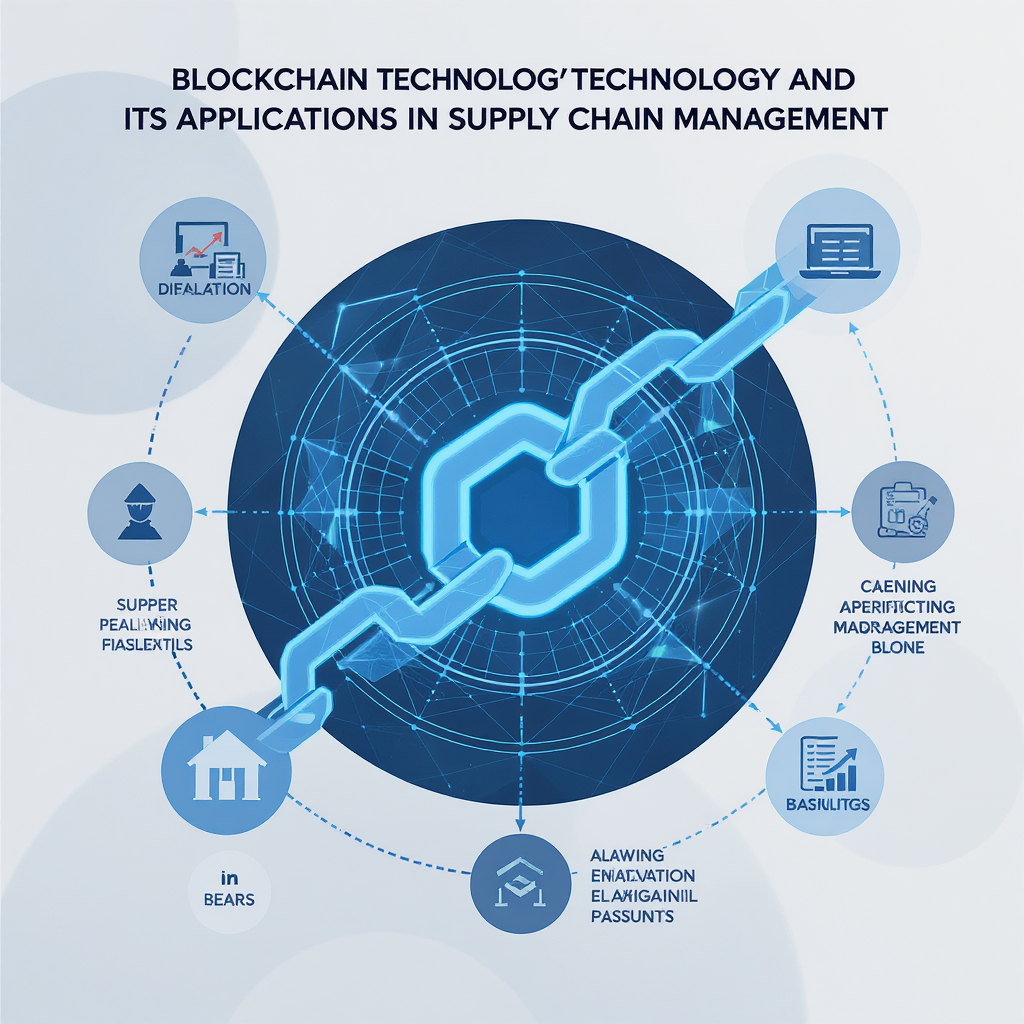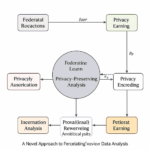The convergence of blockchain technology and supply chain management is reshaping how businesses operate, offering unprecedented levels of transparency, efficiency, and security. This article will explore the transformative potential of blockchain in optimizing supply chain processes. We will delve into its core functionalities, examine key applications across various industries, and discuss the challenges and opportunities associated with its implementation. We will also look at how blockchain enhances traceability, improves security, and streamlines data management within complex supply chains. Finally, we will consider the future outlook of blockchain’s role in this crucial area of business, including its potential impact on sustainability and ethical sourcing.
Enhancing Traceability and Transparency
One of the most significant advantages of blockchain in supply chain management is its ability to enhance traceability and transparency. By recording all transactions and movements of goods on a shared, immutable ledger, blockchain provides a complete and auditable history of a product’s journey from origin to consumer. This transparency is particularly valuable in industries where product authenticity and origin are crucial, such as food and pharmaceuticals. For instance, consumers can scan a product’s blockchain-based identifier to access its entire journey, verifying its authenticity and ensuring it hasn’t been tampered with. This level of detail not only builds consumer trust but also allows businesses to quickly identify and address any issues within their supply chain, minimizing disruptions and recalls.
Improving Security and Reducing Counterfeiting
The decentralized and encrypted nature of blockchain significantly improves supply chain security. By eliminating single points of failure and reducing the risk of data manipulation, blockchain makes it incredibly difficult to counterfeit products or alter shipment information. This is particularly relevant in combating the multi-billion dollar problem of counterfeit goods. Blockchain’s cryptographic security ensures that all transactions are verifiable and tamper-proof, making it nearly impossible to introduce fraudulent products into the supply chain. This heightened security not only protects brand reputation but also safeguards consumer safety and reduces economic losses associated with counterfeiting.
Streamlining Data Management and Reducing Operational Costs
Traditional supply chains often involve multiple intermediaries, resulting in fragmented data and inefficient processes. Blockchain simplifies data management by creating a single, shared ledger accessible to all authorized parties. This eliminates data silos and reduces the time and resources spent on reconciling information. The automated and transparent nature of blockchain transactions also minimizes paperwork and manual data entry, leading to significant cost savings. Moreover, improved data visibility enables better inventory management, reduces stockouts, and optimizes logistics operations, further contributing to cost reduction and increased efficiency.
Smart Contracts and Automation
Smart contracts, self-executing contracts with the terms of the agreement directly written into code, are another key application of blockchain in supply chain management. These contracts automate various processes, such as payments, delivery confirmations, and quality checks. This automation reduces delays, minimizes human error, and improves overall efficiency. For example, a smart contract can automatically trigger payment to a supplier upon confirmation of goods receipt, eliminating the need for manual invoice processing and reducing payment cycle times. Furthermore, smart contracts can be used to enforce compliance with specific regulations or contractual obligations, ensuring accountability and transparency across the supply chain.
Real-world Examples and Future Outlook
Numerous industries are already leveraging blockchain’s potential. The food industry uses it for traceability, ensuring food safety and origin verification. Pharmaceutical companies are using it to track drug shipments and combat counterfeiting. The fashion industry benefits from enhanced transparency and ethical sourcing. However, challenges remain, including scalability, interoperability, and regulatory uncertainty. Despite these hurdles, the future of blockchain in supply chain management is bright. As technology matures and adoption increases, we can expect to see further integration of blockchain solutions, driving greater efficiency, transparency, and trust within global supply chains. The potential for improved sustainability and ethical sourcing is significant, promising a more responsible and resilient supply chain ecosystem. Furthermore, the development of blockchain-based platforms that facilitate seamless collaboration across different stakeholders is crucial for widespread adoption and success.
| Industry | Blockchain Application | Benefits |
|---|---|---|
| Food | Traceability, origin verification | Improved food safety, consumer trust |
| Pharmaceuticals | Counterfeit drug detection, supply chain tracking | Enhanced patient safety, reduced fraud |
| Fashion | Ethical sourcing, transparency | Improved brand reputation, consumer trust |
In conclusion, the integration of blockchain technology into supply chain management presents a paradigm shift, offering substantial benefits across various industries. We have explored how blockchain enhances traceability, improves security, streamlines data management, and enables automation through smart contracts. While challenges remain regarding scalability and regulation, the transformative potential is undeniable. The examples discussed highlight the real-world applications and the promising future outlook for blockchain in creating more efficient, transparent, and secure supply chains, ultimately leading to improved consumer trust, reduced costs, and a more sustainable and ethical global marketplace. The ongoing development and refinement of blockchain technology will continue to shape the future of supply chain management, driving innovation and positively impacting businesses worldwide.
Image By: Black Forest Labs






